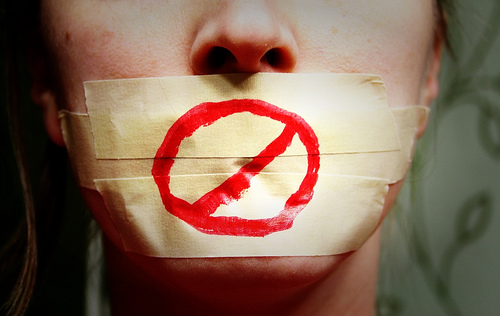
A pastor of a mega church in Singapore was charged yesterday with criminal breach of trust involving S$23 million (RM57 million) in church funds.
The money was allegedly used to finance the secular music career of Rev Kong Hee’s wife from 2007 to 2010. Kong is the founder of City Harvest Church.
I posted on the Facebook page of an evangelical church in Malaysia a June 26 press release by the Singapore Commissioner of Charities, which said that its inquiry into City Harvest Church had revealed financial misconduct and mismanagement of at least S$23 million.
The administrator of the Malaysian evangelical church’s Facebook page, however, deleted my post.
She told me that the church only allowed “encouraging and edifying” posts. She added that the congregation was not “mature enough” to handle such news.
She warned that the “repercussions can be endless” as “misinterpretation will inevitably occur for those who do not understand the situation”, especially since both Christians and non-Christians, young and old, visit the church’s Facebook page.
When I asked if the church was only interested in telling good news, she replied that people can easily read about the scandal in the papers. But people should not read about it on the church’s Facebook page as it might invite all sorts of remarks that could damage the church’s relationship to City Harvest Church.
The point, however, is not about people accessing the news elsewhere.
It is about the church censoring negative information about Christianity as it deems both Christians and non-Christians as not being mature enough to digest such information. That is quite similar to Tun Dr Mahathir Mohamad saying that Malaysians are not mature enough for political debates.
It sounds downright condescending.
A Christian said that the spiritual life of some new Christians might be affected because they may think that all Christians are like that City Harvest Church founder.
Another Christian said that my post might cause non-Christians to stumble in their exploration of Christianity.
A third Christian said that pastors are also humans who sin, so why sensationalise the news.
What does it say of Christianity when believers are afraid of revealing unpleasant truths? Is the Christian faith so weak that it cannot tolerate open discussion of controversial issues; for fear that someone might be led astray?
This is the same church that not-so-subtly tells its congregation to vote against corruption.
The evangelical church could have allowed my post, and stated its stand on the matter while allowing people to read and talk about it. It doesn’t matter if such discussions will solve anything. The point, rather, is to let people think for themselves.
How can people mature in their thinking if information is not presented to them in the first place?
Preaching about the “absolute” truth with a capital T is hypocritical when you suppress other truths you dislike.
If people decide to renounce Christianity because of corrupt Christian leaders, so be it. Religion is always a personal choice. If you are buying a product, you would want to know both its benefits and flaws as an informed consumer.
The worst thing the church can do is to hide its flaws, instead of explaining them.
Unless, of course, the church just wants a flock of mindless sheep who obeys rules without question.
By deleting my post, the church has shown that it is no different from the BN government that blacked out parts of an article in The Economist on Bersih’s rally for fair elections.


My church censored my prayer request to pray for Palestinian people in Palestine being oppressed, with apartheid, and genocide of the Palestinian people by the Israeli military and for the USA to stop supporting the Israeli government.
"I want to save the world."
Ha ha ha. Sorry, but you are 2000 years too late :-)
John 3:16 For God so loved the world, that he gave his only begotten Son, that whosoever believeth in him should not perish, but have everlasting life.
Acts 16:30 And brought them out, and said, Sirs, what must I do to be saved?
Acts 16:31 And they said, Believe on the Lord Jesus Christ, and thou shalt be saved, and thy house.
BTW, good article, although most christian churches would not want to associate with City Harvest (Malaysia or Singapore).
All the best,
DL
PS Sorry for being late to the party. I just discovered this website yesterday. Very interesting articles here though.
well said… i feel some churches just want to indulge in everlasting joy and happiness and lost sight of reality.
This will definitely be very useful for me when I get a chance to start my blog.
This article is rather misleading as it tries to portray the entire Christian faith through the example of a small Christian church.
City Harvest is a church known for pop-concert style masses and…"unusual" practices, to say the least. I'm a student of Catholic faith studying in Singapore, and while City Harvest has a relatively large national following, other groups, including the Catholic Church in Singapore, don't regard it that seriously (although they won't publicly say so), to my best knowledge.
I therefore ask that you please do avoid the trap of using a single example to vilify the rest, even non-associated groups in the future. Remember, you are using the term "Christians", which applies to *all* groups.
I totally agree with your article. Thank you. I feel that such censorship demonstrates the insecurity of some as to the image that Christians are supposed to project. All men are fallible. Is that not the premise of Christianity? If so, why suppress that?
You are absolutely right! Jesus said, "You shall know the truth and the truth shall set you free." No good can come from untruth. The Christian Church should be in the forefront of advocating truth rather than to hide it. Wrong is wrong, right is right. Of course, in this particular case cited, the accused still have the opportunity and right to make their defence before a verdict is arrived at. But how Christians deal with the news of such allegations does reveal how committed we are to truth and the process by which truth may be disseminated. Thank you for your valuable contribution to this process.